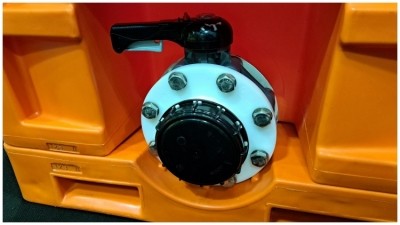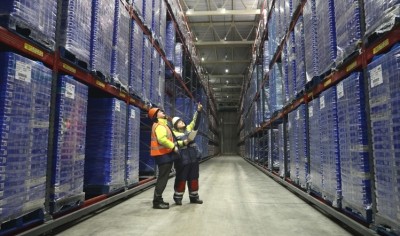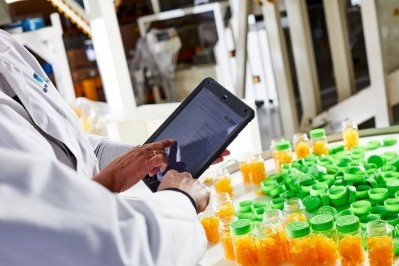Short read
Francis Ward and Aliaxis team up to reduce food contamination

The nature of the food industry means that there are countless risks associated with the transportation of products, from contamination issues through to keeping produce fresh for as long as possible. To minimise these risks, the food industry is under immense pressure to introduce new and innovative solutions.
For one of the UK’s largest chilled prepared food companies, this meant looking at how the business could move away from light duty intermediate bulk containers (or IBCs – essentially a large container used for the storage or transport of industrial goods) that utilise a steel framework, to a more sustainable solution that would keep contamination risks to an absolute minimum.
This was a task given to Francis Ward, a specialist manufacturer of rotomoulded, reusable IBCs which requested the technical assistance of Aliaxis, fluid management specialists and experts in developing plastic solutions resistant to corrosive materials.
By working closely together, Francis Ward and Aliaxis were able to design and provide a truly unique solution for the client that not only mitigated contamination risks, but also boasted an FDA and WRAS approved plastic opening valve, a first for the industry.
Collaboration to meet novel IBC specs
Aliaxis’ focus was the aperture, which the valve and the handle had to fit into. In order to make this work, Aliaxis had to re-design the handle and develop new gearing to allow the valve to open with a far shorter handle than normal – taking an innovative approach to meet the requirements of their client, which could have wider ramifications for the IBC industry.
Light Duty IBCs have long been a key component of the food industry’s storage and shipping process, providing an efficient way to transport both solid and liquid goods.
The client’s need for a new IBC solution for the transportation of olives was primarily due to the potential rusting damage caused by brine on the stainless-steel outlet and framework used in IBCs.
This combination of brine and stainless-steel could potentially lead to the contamination of the product and cause a serious health and safety issue.
“From our initial brief with the client, we knew our current portfolio of IBCs wouldn’t meet the required specifications and we would need to design, develop, and test a truly bespoke solution to meet the specific needs of the business,” a Francis Ward representative said.
“Once our design team had gone through an extensive consultation process, we were confident that we would be able to provide a fit for purpose solution – a fully plastic, rotomoulded reusable IBC that was light and stackable, UV resistant and completely food safe.
The butterfly effect: creating a suitable value
“One of the key challenges we had to overcome was the use of a butterfly outlet valve on the IBC. In order to meet the client’s specifications, the butterfly valve would need to be plastic, food safe, and would need to be 100% resistant to the corrosive impact of brine.”
Butterfly outlet valves are attached to IBCs to allow for the emptying of cargo. There are a variety of outlet valves that work with IBCs, but butterfly valves are idea for where space is at a premium, particularly in larger diameters.
In light of this, Francis Ward approached Aliaxis which, after a rigorous testing process, was able to develop a bespoke fully plastic butterfly valve that met all current FDA and WRAS approval.
The Aliaxis butterfly valve became the final piece of the puzzle, complementing Francis Ward’s rotomoulded, reusable IBC and allowing the client to utilise a 100% plastic solution that enabled the business to provide better service for its customers, all while reducing food wastage and eradicating the risk of contamination.
The client is now in the process of swapping its fleet of light duty IBCs over to Aliaxis’ new solution, with Francis Ward also speaking to other food manufacturers so that it can implement this innovative design across the industry.


















